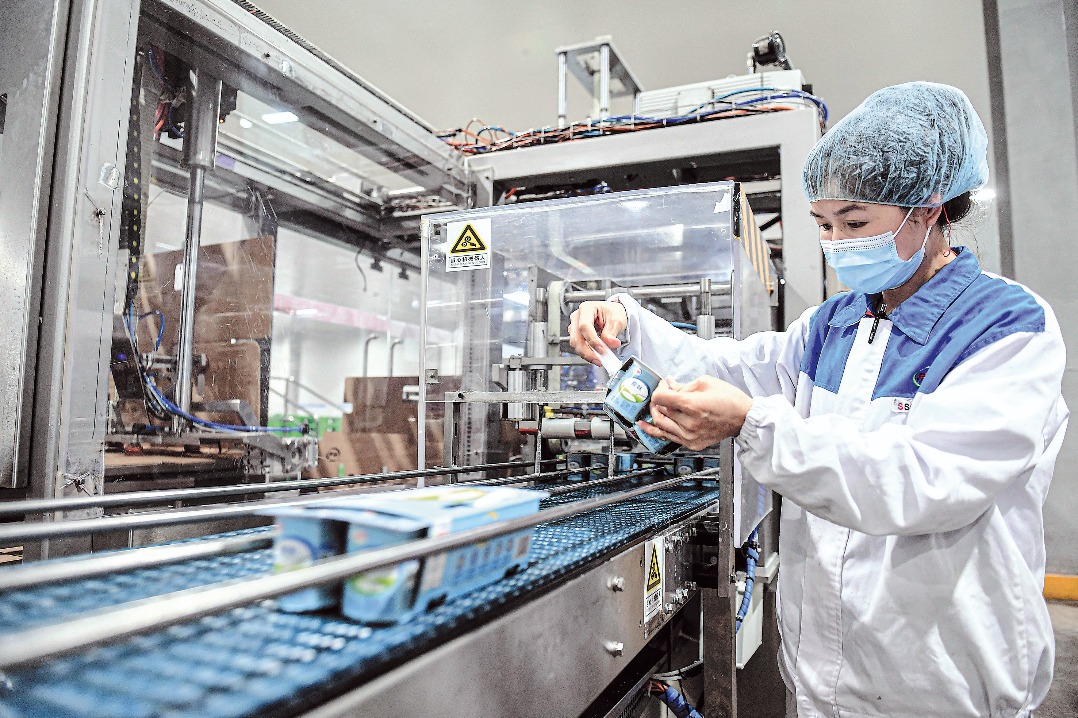IMF warns of buildup in financial risks, calls for solutions


The International Monetary Fund has called for "urgent action" by policymakers to tackle rising financial vulnerabilities across the globe, as a loose monetary environment has magnified debt burden and encouraged riskier investments.
Over the past six months, while global central banks' shift toward a more dovish stance mitigated near-term downside concerns amid escalated trade disputes, it also "encouraged more financial risk-taking and a further buildup of financial vulnerabilities", the multilateral lending agency said in its latest Global Financial Stability Report.
The rising financial instabilities are "putting medium-term growth at risk", said the IMF report released on Wednesday.
"Policymakers need to take urgent action to mitigate financial stability risks," Tobias Adrian, director of the monetary and capital markets department at the IMF, said during the launch of the report.
Specifically, the IMF listed three key vulnerabilities in the global financial system - rising corporate debt burden, increasing holdings of riskier and more illiquid assets by institutional investors, and greater reliance on external borrowings by emerging and frontier market economies.
As a low-interest-rate environment compelled investors to make riskier investments, the share of debt owed by firms with weak debt repayment capacity has risen to a "sizable" level in several major economies, and could reach post-global financial crisis levels in the event of a material economic downturn, the IMF said.
The IMF urged global policymakers to deploy and develop macro prudential tools as warranted as well as to maintain stringent financial supervision.
"We welcome the efforts of the Chinese authorities to increase financial stability," said Vitor Gaspar, director of the IMF's fiscal affairs department.
In a number of areas, financial regulations have been tightening, and the authorities have made an effort to deleverage some parts of the financial system, including the shadow banking system, Gaspar said.
"We do continue to urge the (Chinese) authorities to continue with that path of tightening financial regulations," he said, adding that the shadow banking system is still of a large size, while vulnerabilities remain for small- and medium-sized banks and regional banks.
In May, the Chinese authorities took over Baoshang Bank Co Ltd, a Baotou-based medium-sized distressed commercial lender. This was followed by the restructuring of another two troubled regional banks, the Bank of Jinzhou Co Ltd and the Hengfeng Bank Co Ltd.
"Market expectation has stabilized after the authorities took different approaches to resolving the exposed risks of several small-and medium-sized banks," said Tang Jianwei, chief researcher at the Financial Research Center of the Bank of Communications.
"Risk situation of China's banking sector is overall under control. The spread between the funding costs of highly rated and weaker borrowers remained relatively high, but it should have very limited impact on the whole market," Tang said.
He added that Chinese monetary authorities' determination to avoid an extremely low-interest-rate environment will help contain debt levels and curb asset bubbles, setting the basis for long-term healthy economic development.
The People's Bank of China, the central bank, has not loosened its monetary stance significantly as some other major economies like the United States and the European Union did this year. The PBOC has pledged to not resort to any massive monetary stimulus to tackle downside pressure.
Ruan Jianhong, head of the PBOC's statistics and analysis department, told reporters on Tuesday that the leverage ratio of China's real economy has remained stable in the third quarter, with a possible very limited increment.
The IMF report also urged policymakers to resolve trade disputes and provide clarity on economic policies, which will rein in the main drivers of global downside risks.
In the October update of the World Economic Outlook, the IMF downgraded its projection of global growth to a decade-low of 3 percent for 2019.
Xinhua contributed to this story.




































